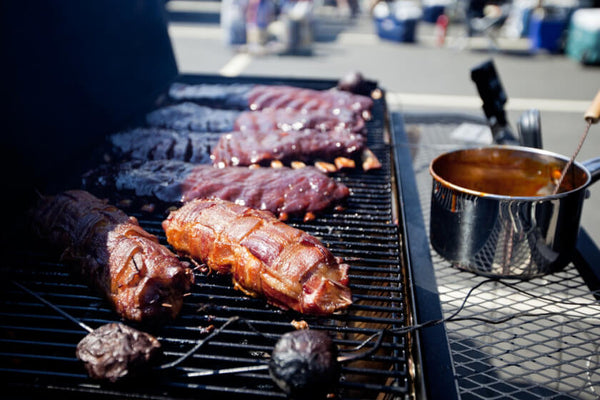Slow and low barbecue cooking
By Ali Graham, Medium Well

The British barbecue tends to involve cooking quickly, but to many of our American friends, the barbecue is a “slow-and-low” experience, to create tasty, smoky meat. After all what's not to like about big pieces of meat, fire and beer?
Thanks to the street food movement, it is becoming more popular here in Britain, and this just might be the summer to think differently about cooking outdoors. Along with being a lot of fun and tasting amazing, as a rule the joints and cuts used tend to be relatively cheap to buy, so you can save on cash without compromising on quality. You can <a href="/meat/bbq-packs.html">buy bbq meat online</a> easily these days, and pork shoulder, pork belly, ribs, brisket and feather blade lend themselves well to slow smoke cooking.
Speak to any BBQ expert (or 'PitMaster' as they're known Stateside) and they'll tell you good meat is essential if the end result is going to be good. The meat is often rubbed with a combination of salt, sugar and spices and left to cure overnight, which draws the flavour of the spices into the meat tissue. If you're not confident making your own rub, you can pick up some really good rubs and marinades all over the place so don't let that put you off.
Patience is key, and as such you need to keep the temperature down and keep the meat away from direct flame. Thermostats and gadgets do help the process, but patience is the number one thing you need to allow the collagen to break down into gelatin, which gives that unique pull apart texture.
A solid barbecue with a lid is essential, and the ideal temperature for slow cooking is 90-110°C. You need to cook indirectly by positioning the meat away from, and not over, the coals or wood. Moisture is important, so sit a tray full of water (or even beer) under the meat. Add the charcoal slowly, about half a dozen pieces per hour, and ideally light it in a cheap bucket barbecue and stick it on when it is covered in white ash.
Cooking times vary depending on the cut of meat, and we'd strongly advise you use a meat thermometer when barbecuing, and remember you're in it for the long hall. You can expect to cook and smoke for between 4 and 10 hours, which might seem like a long time, but with sun, fire, beer and meat, what else did you have planned that could possibly be better?